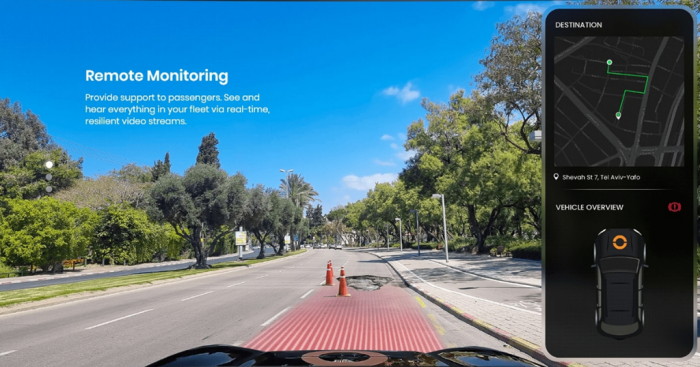Future mobility
Hyundai Mobis, Ottopia tie up for remote mobility tech
The Korean auto parts maker aims to expand its customer base to other sectors such as logistics, construction, mining, agriculture
By Dec 21, 2022 (Gmt+09:00)
2
Min read
Most Read
LG Chem to sell water filter business to Glenwood PE for $692 million


Kyobo Life poised to buy Japan’s SBI Group-owned savings bank


KT&G eyes overseas M&A after rejecting activist fund's offer


StockX in merger talks with Naver’s online reseller Kream


Mirae Asset to be named Korea Post’s core real estate fund operator



Hyundai Mobis Co., the world’s sixth-largest automotive part supplier, and Israeli teleoperation startup Ottopia Technologies Ltd. have joined forces to develop remote mobility assistance (RMA) technology for the commercialization of autonomous transportation equipment.
Hyundai Mobis said on Wednesday it formed a partnership with Ottopia to introduce an end-to-end RMA solution. The car components maker within South Korea’s largest automaker Hyundai Motor Group is set to provide the hardware and software platform, as well as system integration while the Israeli company is poised to work on all the core technologies for teleoperations.
“This partnership allows autonomous and automation developers in all industries to cut their R&D spend, commercialize faster and meet regulatory requirements for deployment." Ottopia founder and CEO Amit Rosenzweig said in a statement. "It really is a game changer for autonomy.”
FOR LEVEL 4 AND LEVEL 5 SELF-DRIVING VEHICLES
RMA is a new technology aimed at the market of self-driving vehicles of Level 4 that can drive themselves under limited conditions, and Level 5 that enables fully automated driving. It is likely to be ineffective for each unmanned mobility service operator to establish customer service networks to deal with unforeseen incidents and RMA is predicted to complement them.
Hyundai Mobis started the RMA development focusing on mobility companies as it expects to create profits from autonomous mobility technologies including RMA once Level 5 self-driving vehicles are commercialized.
The commercialization of RMA is predicted to expand Hyundai Mobis’ potential clients to not only robotaxi and robo shuttle bus operators but also logistics, construction, mining, agriculture and last-mile delivery service providers.
The company’s RMA under development, which is set to equip 5G telecommunication modems based on a high-performance electronic control unit (ECU), is a user-friendly platform that provides customized services for each mobility service operator.
Its vehicle services may include teleoperation, remote diagnostics, Over-The-Air (OTA) updates, and fleet management that allows customers to manage hundreds to thousands of mobility units in real-time.
Last year, Hyundai Mobis unveiled its mid-to-long-term strategy by shifting its business focus from traditional auto parts toward future mobility technologies and services.
Write to Hyung-Kyu Kim at khk@hankyung.com
Jongwoo Cheon edited this article.
More to Read
-
 AutomobilesHyundai Mobis to unveil new future mobility technologies at CES 2023
AutomobilesHyundai Mobis to unveil new future mobility technologies at CES 2023Dec 05, 2022 (Gmt+09:00)
1 Min read -

-
 Future mobilityHyundai Mobis expands mobility business, reveals concept cars
Future mobilityHyundai Mobis expands mobility business, reveals concept carsApr 01, 2021 (Gmt+09:00)
3 Min read
Comment 0
LOG IN


